Best for creatine purity Creatine is one supplement which has been researched for years and verified for its effectiveness and safety (We can’t say the same for every supplement out there).
But it may still be an underrated fitness supplement and there are many people out there still leaving gains on the table because they choose not to use it.
So… it’s our job to show you the best options on the market, and in 2022, they’re better than ever. Now, creatine is no miracle supplement but it will noticeably increase your lifts and help you to gain some muscle just a little faster than without it. (1)
But, with all the different types of creatine like monohydrate, hydrochloride (HCL), Ethyl Ester, and many more, choosing the “right” creatine can be frustrating. But don’t worry; we’ll clear up any confusion.
So, with all of that being said let’s discuss the benefits of using creatine a little further, and show you our top picks for this year…
Top Creatine Supplements to Buy:
- Best Creatine Overall: Transparent Labs Creatine HMB
- Best Overall Blend: BPI Sports Creatine Monohydrate
- Best for Optimal Absorption: KAGED CreaClear™ Creatine Monohydrate
- Best for Creatine Purity: Muscle Feast Creapure Creatine Monohydrate Powder
- Best Monohydrate Capsules: Optimum Micronized Creatine Monohydrate Capsules
- Best Creatine Monohydrate: Bulk Supplements Micronized Creatine
- Best on a Budget: MuscleTech Platinum Creatine Monohydrate
- Best for Women: Biofinest Creatine Monohydrate
- Best for Post-workout: Legion Recharge Postworkout
- Best Creatine Hydrochloride (HCL): Kaged Muscle Creatine HCL
- Best Creatine Pill: Crazy Muscle THREE-ATINE
- Best Muscle Building/Blend: Genius Tri-Creatine
How Much Do Creatine Supplements Cost?
Factors that determine the cost of a creatine supplement include brand, creatine form, ingredients and servings.
Monohydrate powder is usually the cheapest per serving but while still offering lots of servings per container. Hydrochloride is going to be a little pricier but it may offer some advantages over monohydrate and HMB often costs more than the two aforementioned creatine types.
| Creatine Supplements | Why we love it | Price |
| Transparent Labs Creatine HMB | Best Creatine Overall | $39 — $1.3 Per Serving |
| BPI Sports Creatine Monohydrate | Best Overall Blend | $25 — $0.48 Per Serving |
| KAGED CreaClear™ Creatine Monohydrate | Best for Optimal Absorption | $30 — $0.33 Per Serving |
| Muscle Feast Creapure Creatine Monohydrate Powder | Best for Creatine Purity | $40 — $0.72 Per Serving |
| Optimum Micronized Creatine Monohydrate Capsules | Best Monohydrate Capsules | $23 — $0.15 Per Serving |
| Bulk Supplements Micronized Creatine | Best Creatine Monohydrate | $20 — $0.46 Per Serving |
| MuscleTech Platinum Creatine Monohydrate | Best on a Budget | $23 — $0.19 Per Serving |
| Biofinest Creatine Monohydrate | Best for Women | $ — $ Per Serving |
| Legion Recharge Postworkout | Best for Post-workout | $45 — $0.75 Per Serving |
| Kaged Muscle Creatine HCL | Best Creatine Hydrochloride (HCL) | $16 — $0.21 Per Serving |
| Crazy Muscle THREE-ATINE | Best Creatine Pill | $27 — $0.9 Per Serving |
| Genius Tri-Creatine | Best Muscle Building/Blend | $25— $1 Per Serving |
Best Creatine Overall – Transparent Labs Creatine HMB
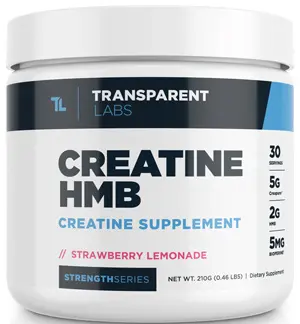
Transparent Labs is one of the best brands out there but we also just like their creatine HMB (β-Hydroxy β-Methylbutyrate) which isn’t just plain creatine. On top of that, Transparent Labs added Creapure® creatine which when combined with HMB is apparently a duo that can have impressive effects on strength, endurance, muscle preservation, and fat loss.
Each dose contains 5,000mg or 5g of Creapure, 1500mg HMB, and 5mg of Bioperine.
While monohydrate is the most studied form of creatine and we know it works, β-Hydroxy β-Methylbutyrate (HMB) is not as familiar.
That doesn’t mean it can’t offer the same or better results.
One 2009 study of resistance-trained men found that HMB caused an increase in muscle growth and significant gains in lower body strength compared to a placebo group.
As for the potential benefits during endurance-type activities, a study on college students who participated in interval training concluded that HMB positively affects selected components of aerobic performance.
Then, of course, you have Bioperine, which is an extract from the black pepper fruit that is known to enhance the bioavailability of certain nutrients which could improve the effectiveness of the ingredients in a supplement.
Transparent Labs creatine HMB is a beast of a product and that’s why we chose it as our best overall choice! Of course, that doesn’t mean it’s totally superior as the other options on this list are unique and also top-notch.
Best Overall Blend – BPI Sports Creatine Monohydrate
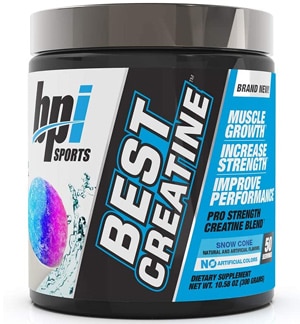
BPI Sports creatine monohydrate is unlike anything we’ve reviewed yet containing a creatine proprietary blend. It contains six forms of creatine including monohydrate, anhydrous, Magnapower, phosphate, AKG and pH buffered creatine alkaline.
These creatine variations offer superior absorption and work synergistically to enhance strength and muscle gains, power output, recovery, and more.
One of the creatine forms, AKG, which is creatine bonded to Alpha-Ketoglutarate (AKG), is a precursor to the amino acid glutamine that plays a role in muscle growth but it’s mostly used for recovery purposes.
With this product you also get 500mg of betaine which research has shown to increase strength and power. Himalayan sea salt is also added which can help with hydration.
This formula does not require you to do a loading phase and was designed to absorb better and therefore work faster. This should also reduce the potential for bloating significantly.
It’s a lab-tested and third party verified product to ensure a quality product.
Best for Optimal Absorption – KAGED CreaClear™ Creatine Monohydrate
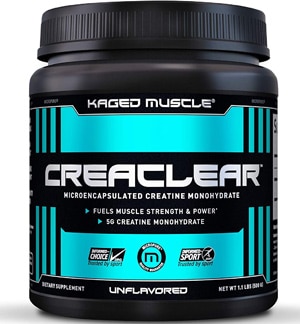
The appeal of Kaged CreaClear™ is the supposed superior mixability and solubility that’s supposed to elicit faster effects with no bloat or stomach discomfort. The brand even offers a stomach-friendly promise that you will not experience discomfort often felt from using plain monohydrate.
This is possible with microencapsulation technology that protects the creatine as it makes its way through the gastric system before it is absorbed and utilized.
The powder should also mix clear in water and dissolve quickly which means there should not be any grittiness.
To maximize the effects of CreaClear™, a loading phase is recommended and then you should follow up with a smaller dose for maintenance everyday thereafter the first week of higher dosing.
It’s Informed Sport and Informed Choice Trusted by Sport, and has a Micropure quality guarantee.
Best for Creatine Purity – Muscle Feast Creapure Creatine Monohydrate Powder
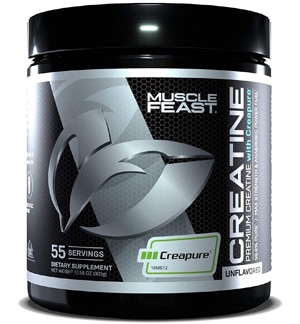
Different from CreaClear™, this product by Muscle Feast uses a form of creatine called Creapure®. It’s been said to be one of the purest and top quality forms of monohydrate that is made by AlzChem Trostberg GmbH in Germany to ensure this level of purity and potency.
While these are some serious claims, you may have to try it for yourself to determine if it really is a superior form. We do know Creapure has been around for a long time and it’s used in many effective creatine supplements. We’d give it a thumbs up.
It’s also ranked by Labdoor for accuracy, purity and Sport and that says a lot about what it offers.
Every serving offers 5400mg of creatine and you should do a loading period for faster progress.
Best Monohydrate Capsules – Optimum Micronized Creatine Monohydrate Capsules
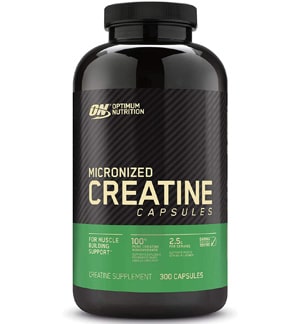
And last but certainly not least, Optimum Nutrition’s creatine monohydrate capsules. The brand is one of the most popular and reliable and we know they offer quality options from every category.
The capsules contain 100% creatine monohydrate with 2.5 grams per serving (2 caps).
We recommend this product if you’re looking for a simple monohydrate in capsule form. Capsules are great because you have the convenience of pre-filled capsules.
Best Micronized Creatine – Bulk Supplements Micronized Creatine
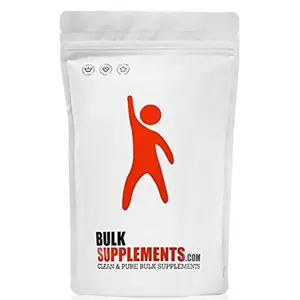
Micronized creatine is a more fine and absorbable version of creatine monohydrate and many people prefer it due to its more water-soluble nature. If it’s more water-soluble then this means it should absorb into the muscles faster.
Well… this is the whole appeal of micronized creatine and Bulk Supplements did a great job creating a very affordable product which contains 400 servings (That’s a lot of servings)!
There are ten sizes you can choose from and you also have a powder or capsule option.
Bulk Supplements Micronized Creatine

Bulk Supplements Micronized Creatine
Bulk Supplements Micronized Creatine is free of soy, sugar, dairy, gluten, yeast, and additives. It increases your muscular endurance and speed for workouts.
Best on a Budget – MuscleTech Platinum Creatine Monohydrate
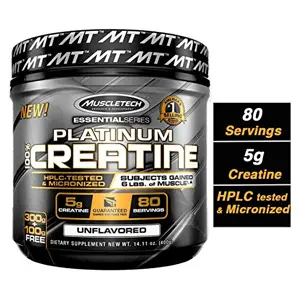
Sometimes we just don’t want to spend any money on supplements but often times we have no choice (If we want to make gains). So, at this point, the cheapest options are the most desirable and at least they won’t break the bank…
Now, MuscleTech’s Platinum creatine is just another micronized creatine supplement and there’s nothing really special about it when compared to other similar products. But… MuscleTech claims that a study showed Platinum users to gain 6 pounds of muscle in 6 weeks when using max dosages.
So you might have to be the judge of this and try it out for your own testing!
MuscleTech Platinum Creatine Monohydrate

MuscleTech Platinum Creatine Monohydrate
MuscleTech Platinum Creatine Monohydrate has no added sugar and additives. Helps build muscle size, strength, combat muscle breakdown, and increases growth.
Best for Women – Biofinest Creatine Monohydrate
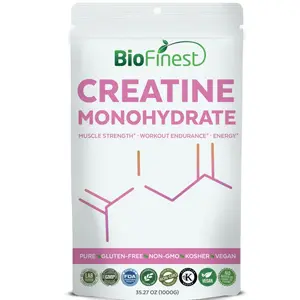
We know the ladies can be skeptical (And for good reason) when it comes to supplementation sometimes but there’s nothing sketchy about Biofinest creatine and the ingredients are purely creatine monohydrate (No worries of big muscles or mysterious weight gain).
It’s pure, lab-tested, FDA approved and there is nothing in this powder besides creatine monohydrate. No fillers, preservatives, chemicals, soy, sugar… nothing!
So, if you want a pure product from the best, this is your best bet and with 400 servings, you’ll have plenty to last you for more than a year.
Biofinest Creatine Monohydrate

Biofinest Creatine Monohydrate
Biofinest Creatine Monohydrate is Pure and Natural, Non-GMO, Gluten Free made in USA. Support muscle strength, workout endurance, and energy.
Best for Postworkout – Legion Recharge Postworkout
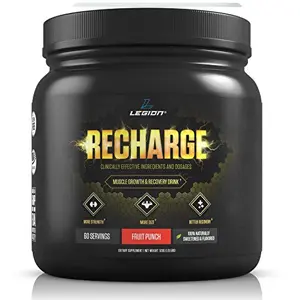
Creatine monohydrate, L-Carnitine L-Tartrate, and corosolic acid are the powerhouse ingredients in this formulation.
L-Carnitine L-Tartrate has been shown to reduce exercise-induced muscle damage, muscle weakness, and exercise fatigue which helps you to recover faster and more efficiently after grueling workouts. (13, 14)
Corosolic acid comes from the banaba plant and has shown to improve insulin sensitivity and lower blood glucose levels which is great for fat loss and muscle gain. (15)
Legion Recharge Postworkout

Legion Recharge Postworkout
Legion Recharge Postworkout is naturally sweetened and flavored. Contain pure creatine monohydrate. Help gain strength faster. Powerful recovery formula.
Best Creatine Hydrochloride (HCL) – Kaged Muscle Creatine HCL
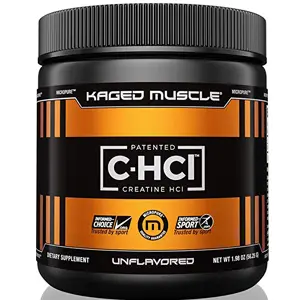
Kaged is hydrochloride creatine and people love HCL because it’s supposedly much more soluble than monohydrate and much easier on the digestive system. In fact, a study showed HCL is 38 times more soluble than monohydrate with lesser dosages. (16)
However, there hasn’t been any testing to verify its effects on humans regarding improved performance, and therefore creatine HCL is not superior to monohydrate from the information we have at this point and time. But, the best way to find if something is more effective for you is to give it a test trial.
You can get Kaged in a powder or pill form.
Kaged Muscle Creatine HCl is naturally flavored, no artificial colors and free of banned substances. It has pure creatine HCL.
Kaged Muscle Creatine HCL

Kaged Muscle Creatine HCL
Best Creatine Pill – Crazy Muscle THREE-ATINE
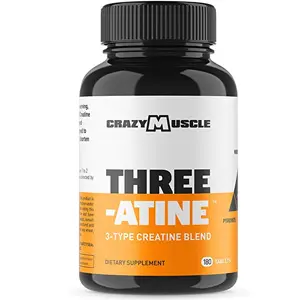
Sometimes you just want to swallow a few pills and be done with it, and with Crazy Muscle’s THREE-ATINE, it doesn’t get much simpler. But being in a pill form isn’t what makes this THREE-ATINE great, as it’s a quality tri-blend of creatine which includes monohydrate, Alphaketoglutarate, and Pyruvate.
Now, each pill is packed with 1,667 mg of creatine which is higher than most other pills and the three creatine types chosen are proven to work well together for maximum absorbency and saturation in the muscle cells.
There are 5 size options available.
Crazy Muscle THREE-ATINE

Crazy Muscle THREE-ATINE
Crazy Muscle THREE-ATINE pills help accelerate muscle growth, replenishes muscle cells, generates energy and instant effectiveness.
Best Muscle Building/Blend – The Genius Brand Tri-Creatine Power Complex
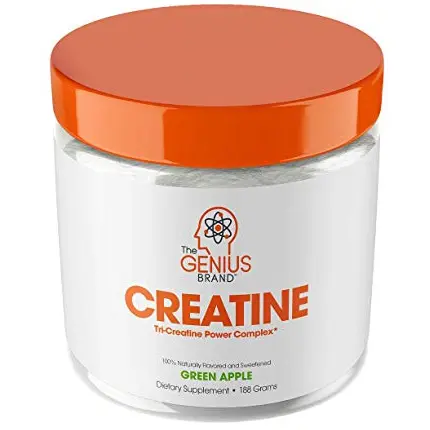
The secret ingredients in this product include German Creapure, creatine HCL, Beta-Alanine, and creatine Magnapower (Creatine Magnesium Chelate).
Creapure is supposedly the finest and purest form of creatine monohydrate so many people look for it specifically when considering a creatine product. But there’s no real evidence to support it being more effective or superior to regular old creatine monohydrate.
Creatine HCL is marketed as being more soluble (More absorbable) while being easier on the stomach and this is a noticeable difference for many. (16)
Beta-Alanine is a non-essential amino acid which means we produce it naturally. But many people supplement with Beta-Alanine because it increases carnosine production in the muscles which have shown to improve exercise performance and reduce muscle fatigue by neutralizing lactic acid buildup in the muscle. (17, 18)
Creatine Magnesium Chelate is creatine simply combined with magnesium increased ATP synthesis. But a study showed it to be on par with regular creatine monohydrate for performance improvement. (19)
Genius Creatine

Genius Creatine
Genius Creatine Powder The anabolic post workout supplement: Recharge every cell and build muscle faster with our advanced recovery fusion of german creapure, creatine HCL and proven strength gainer; Magnapower for lean mass building.
How We Decided Best Creatine Picks
Below we’ve included some details on how we chose these creatine supplements. This information will be especially useful for those who haven’t used creatine before and want to make a good choice to ensure they are purchasing the best option for them.
Quality
Quality is the most important factor when choosing any supplement because a) if there’s a chance it lacks purity and potency, there’s no point in wasting your time, and b) there’s a chance you’re wasting your hard-earned money.
Look for products that do third-party testing, will provide certificates of analysis and ensure good manufacturing practices. Additionally, user feedback is a great way to tell if a product is a good buy or not.
We selected what we believe to be among the best options on the markets from proven companies.
Now, that doesn’t mean supplements from lesser known brands are no good. But we like to see a good track record before recommending those products.
Type of creatine
There are several forms of creatine.
For example monohydrate is the most common form of creatine found in a large number of products. You also have HMB (β-Hydroxy β-Methylbutyrate) that Transparent Labs uses for their product, hydrochloride (HCL) is the form in Kaged Muscle’s product or the tri-creatine product by The Genius Brand that includes German Creapure, creatine HCL, and creatine Magnapower.
We like to offer a few different options to choose from but we also include the details that help with making a decision.
Creatine form
Creatine comes in many forms including powders, pills, liquids, drinks, and chews. Whichever you choose comes down to personal preference as there’s really no perfect recommendation. Powders require mixing in water while you simply swallow pills and the convenience of the latter is ideal for many while others are ok with mixing and drinking which often costs less overall.
Then you have flavored and unflavored options. Finding a product that you like the taste of can be challenging and hit or miss sometimes.
Cost
Creatine is typically affordable which is good because it works (for those who respond well to it of course). Monohydrate powder is usually the cheapest option and you can never go wrong with it.
Other forms like hydrochloride and kre-alkalyn may be a little more expensive or options that are offered in pill form for the convenience. But we’d say they’re worth it. Also, more ingredients in one product and higher ingredient doses contribute to a higher cost.
For example, Transparent Labs creatine HMB that’s featured on this list also contains Creapure® and this is supposed to have an even more pronounced effect on performance and physiological factors.
It could be an overall superior form of creatine!
So with that being said, products vary in price. You have to decide which is most suitable for you.
Below we’ve included a pricing table for comparison of products’ price per serving.
What is Creatine?
Creatine is an amino acid stored in our muscles, brain, and heart after it’s converted into phosphocreatine and our bodies use it for energy as a part of Adenosine triphosphate (ATP) production. ATP is a usable form of energy for cells which powers our muscular contractions. (1, 2, 3)
Now, we get plenty of creatine from red meats and fish but sometimes we don’t eat enough to experience the muscle-building benefits. (2)
So, that is why we use supplements to increase our performance levels and creatine has been proven through numerous studies to offer significant performance and aesthetic benefits. (4, 5)
But creatine’s benefits go even further as studies have shown normal consumption to decrease fatigue and substantially improve cognitive function and quality of life in older adults. This is huge for reducing the burden of certain chronic conditions which severely affect older adults worldwide. (6, 7)
Now, our kidneys and liver do produce creatine too but we can never produce enough naturally for it to be beneficial to our fitness goals. So, this is another reason to supplement it in our diets. (1, 2)
A study showed creatine to increase weightlifting performance on average by 14% when combined with creatine supplementation. One-rep bench press max increase varied from 3-45% when using creatine and this is significant enough to appreciate the benefits! (8)
Find your daily creatine intake by using our Creatine Calculator!
What you need to know before buying creatine
Before buying creatine based on a recommendation from someone else, you should take the time to understand what it is, what it does, how it can benefit you, and if it’s something you should include in your supplement regime.
This ergogenic aid has many intriguing benefits and there are different forms of it. Your goals and health should determine whether or not you should buy it though.
Here are some things to consider before making your purchase.
Do you know the difference between creatine types?
Make sure you understand the difference between creatine types. We’ve included these details in the article to help you make the best possible decision. For example, you should know what loading entails and whether or not it’s necessary.
What form do you prefer?
Are you a pill or powder supplement user? This is a big deciding factor for many. Not everyone wants to chug down a creatine drink and some cannot swallow capsules. Heck, some even like a sweet chewable.
Make sure to check what form the creatine is before purchasing and don’t assume.
You may not respond to creatine at all
The fact of the matter is when it comes to creatine, not everyone responds to it the same. Some don’t respond at all and therefore will see little to none of the results that they were expecting or that they’ve learned are possible with this supplement.
But before you throw in the towel, make sure you’ve used a product consistently and as instructed by the label. If you’re sure a product is ineffective for you, give another a try. You could have received a bad batch or maybe it was a certain product in general that didn’t work for you.
You may have also not gotten the results you expected or as quickly as you hoped because you did not do the loading phase. With monohydrate, this does saturate the muscles faster which typically produces faster results.
It’s also possible that a certain type or form of creatine works best for you. Monohydrate has been offered in supplement form for a very long time. But newer variations are now offered and you could try those too.
Most importantly, be consistent, take the product everyday as suggested, eat right, drink enough water, sleep well, destress, and have a good training program. Then you may realize its full potential.
Best Type of Creatine
As of right now, there is not enough conclusive evidence to suggest one form of creatine is “better” than another, especially when comparing creatine monohydrate vs creatine hydrochloride (HCL).
These two forms of creatine are no doubt the two most popular, although monohydrate has been studied for longer and we know without a doubt that it works – but so does HCL. This is according to real user experience and their chemical makeup.
Creatine monohydrate is a single creatine molecule bonded to a single water molecule while HCL is creatine combined with hydrochloride. Consequently, monohydrate has low solubility in water and tends to cause water weight gain while HCL is a more soluble (approximately 38 times more soluble) creatine that’s supposed to have superior absorption and reduce bloat and stomach discomfort. (9)
That doesn’t mean HCL is necessarily “better” though (10).
Creatine Monohydrate Vs. HCL: What’s the Difference?
But creatine HMB can certainly be included in the mix for its supposed superiority and you can check out the research studies we’ve included to compare the different options in this review.
What Are the Benefits of Creatine?
Creatine supplements have been shown to offer the following benefits although its effects can vary from person to person.
- Increased strength
- Muscle growth
- Muscle preservation
- Increased fat loss
- Improved physical performance
- Better recovery
- Enhanced cognitive function and health
- May have a positive effect on hormones
- May contribute to improved blood sugar health
We’ve included several links to related content with a deeper explanation of the potential benefits you can expect from taking creatine supplements.
Is Creatine Bad for You?
The short answer is no.
For most healthy people, the few long-believed myths about creatine such as it causes kidney damage has for the most part been dispelled.
However, if you do have kidney issues or other health conditions that’s not to say taking supplements without the guidance of a health professional won’t make your condition worse.
It’s also important to understand that you should be consuming plenty of water and otherwise keeping your body healthy.
Creatine has been studied for decades and it’s been shown to be very safe to use.
Read more on the safety of creatine supplementation here.
Safety Concerns
Although creatine is deemed a safe supplement, it’s not recommended in certain instances as it can cause unwanted side effects. But these cases occur more so when the user suffers from preexisting health conditions and dehydration.
Always check with your doctor before implementing any nutritional supplements into your daily regimen.
Possible side effects include: (10, 11)
- Dehydration
- Nausea
- Possible kidney issues
- Possible Liver issues
- Cramping
- Dizziness
When Should I Take Creatine?
When it comes to taking creatine, consistency and proper dosing is more important than when or what time of the day it’s taken.
Creatine is stored in the muscles and used up during physical activities. Because food does not provide enough creatine to offer performance and muscle-building benefits, it’s important to keep the muscles saturated with this amino acid to fully benefit from it.
Creatine is not something you can take a few times and expect it to last for a long time. You must take your doses on a regular basis.
However, there was a study that found taking creatine immediately post-workout is superior to a pre-workout dose for eliciting positive changes in body composition and increasing strength (12).
The study did use monohydrate though and so we don’t know how the others would compare. So if you are taking creatine monohydrate, research suggests you should have it right after a training session for best results.
What’s The Best Creatine?
There has been one form of creatine that has stood the test of time seeing as it was the first form of creatine to come to market and that’s creatine monohydrate! (13)
There have been a lot of “fancy” newcomers brought to the market, but without as much research it’s hard to recommend many.
However, HCL, a newer option, is one form that could be as effective or better. It’s supposedly better absorbed, easier on the stomach, and doesn’t require loading (how is this not a no-brainer?).
It’s not been out as long as monohydrate and is more expensive though. So it may be a good idea to experiment with both as there’s no way to tell which is best for one person.
Creatine monohydrate is the longest studied form of creatine and we know it works great for those who respond to it. However, don’t dismiss the other forms that may offer advantages.
Do I Need to Load Creatine?
The short answer is no, you do not have to load creatine.
However, with monohydrate, a proper loading phase should mean that you benefit from it faster. So, for example, you would take 15-20 grams for 4-7 days and then do 5 grams everyday thereafter for maintenance.
You could also take smaller doses such as 5g per day but it would likely just take a few extra weeks to experience the full effects.
Neither method is wrong, it just comes down to personal preference.
Loading could get you there faster but you also have to remember to take several doses throughout the day and for some, this is an inconvenience.
Creatine hydrochloride, on the other hand, will supposedly have similar effects to loading but without having to do any loading. This is certainly something to consider. It’s a little pricier but overall relatively affordable.
Learn more about creatine loading in this article.
How much creatine should I take?
This depends on how much you weigh, the type of creatine, and your goals.
The effectiveness of creatine is largely dependent on dose relative to weight. Also, between the different forms of creatine, dosing will vary. A good example of this is the loading phase with monohydrate and the fact that you don’t have to with HCL. Make sure to read the label and follow the instructions accordingly for best results.
Type your weight into our creatine calculator to get an estimate of your optimal creatine intake.
What About Loading and Dosing?
So, here’s the deal with creatine loading and dosing…
Loading phase – The whole purpose of loading creatine is to saturate your muscle cells fast so you can start seeing results without waiting longer for lower doses to saturate your cells. Generally, you’ll take 20 grams of creatine per day for several days to load effectively. (14, 15)
This causes the muscles to swell up with intracellular water making you look bigger, and it also puts on bodyweight fairly quickly. But this quick weight gain also increases your strength pretty quickly too!
Now, the loading phase is absolutely not necessary if you prefer to take smaller doses, however, you’ll just to wait a little longer for the creatine to saturate your muscles. But, after the loading phase which spans over approximately five days, you’ll take 3-5 grams of creatine every day after that to maintain your creatine levels.
Note: Loading is unsafe if continued long term so it’s highly recommended to adhere to the recommended dosing instructions.
Regular/Maintenance dosing – Many people choose to not load and just do the maintenance doses at about 3-5 grams per day. This is completely fine and will yield the same results over an extended period of time. (14)
So, now that we got that out of the way, it’s time to introduce you to our top picks this year…
Learn more about Creatine:
- The 5 Supplements Worth Taking (And Another Five That Aren't)
- Creatine Before and After: How Creatine Supplement Affects Your Body
- I’m a Supplement Researcher — These 3 Creatine Forms Will Supercharge Your Gains (and One’s a Total Rip-Off)
- Creatine and Acne: Are You Making This Common Mistake?
- STOP Wasting Your Creatine! The Ultimate Guide to Proper Usage
- How Long Does Creatine Stay in Your System? A Doctor Explains
- What Happens To Your Body When You Take Creatine Every Day For Muscle Gain?
- Creatine + Whey Synergy: The Science Behind This Power Duo's Muscle-Building Magic
FAQs
What does creatine do?
Creatine is an amino acid that converts to a substance called phosphocreatine in the body where it’s stored in the muscles and is then used as energy for muscle contractions in the form of adenosine triphosphate (ATP). This supports muscular performance, muscle growth, and other processes that occur in the body including the benefits associated with creatine.
When to take creatine?
What’s more important is that you take the creatine everyday or as instructed by the product label. Creatine is not similar to a pre- or post-workout supplement in that you need to take it at a specific time for optimal results. As long as the muscles stay saturated with creatine it should work just the same. However, some research suggests post-workout creatine intake is superior to taking it pre workout for muscle and strength gains.
How much creatine should I take?
This depends on how much you weigh, the form of creatine you buy and your goals. Check out our creatine calculator to learn more about optimal intake and to find yours with our simple tool.
How much creatine per day?
Again, this depends on several factors but more importantly your weight. Find your ideal creatine intake with our super simple online tool.
What’s the best type of creatine?
As of now there is no definitive answer to this. While monohydrate is the longest studied form, hydrochloride (HCL) and HMB may offer advantages although all are no doubt effective. There are also other forms but the aforementioned are the most common and we recommend them.
How long does creatine stay in your system?
If you’re worried whether creatine could cause you to fail a drug test then the good news is that it shouldn’t because it’s not a steroid and it does not interfere with your hormones. Plus, it’s naturally produced by the body and is found in meats. If you’re just wanting to know for general reasons then it could depend on the situation (e.g, your weight, health, quality and dose of creatine, activity habits).
In general though, elevated levels of creatine may last a day or several depending on different factors. Creatine typically has a 3-6 hour half life and so from the last dose, it may take almost a day for the exogenous creatine to be depleted. But since creatine forms phosphocreatine and creatinine of which the latter has a little longer half life, it may take closer to 24 hours or possibly longer.
How to get creatine out of your system?
Here are a few ways to get creatine out of your system as quickly as possible – stop taking it, do more physical activity, eat less protein, consume more fiber, reduce salt intake.
What happens when you stop taking creatine?
When you stop taking exogenous creatine, the body will continue to use what’s left and it will not be replenished unless you continue to take more creatine.
Final Thoughts
That’s it… creatine supplementation is not rocket science but the only difference between many creatine products you see on the market are their quality, and any additional ingredients included for added effect.
So, we’ve provided some great choices for you to choose from and we expect you’ll make a good decision based on your budget, goals, and tastes.
Creatine is a proven supplement that will get you results so no worries there… just find one that suits you!
Tip: If you're signed in to Google, tap Follow.


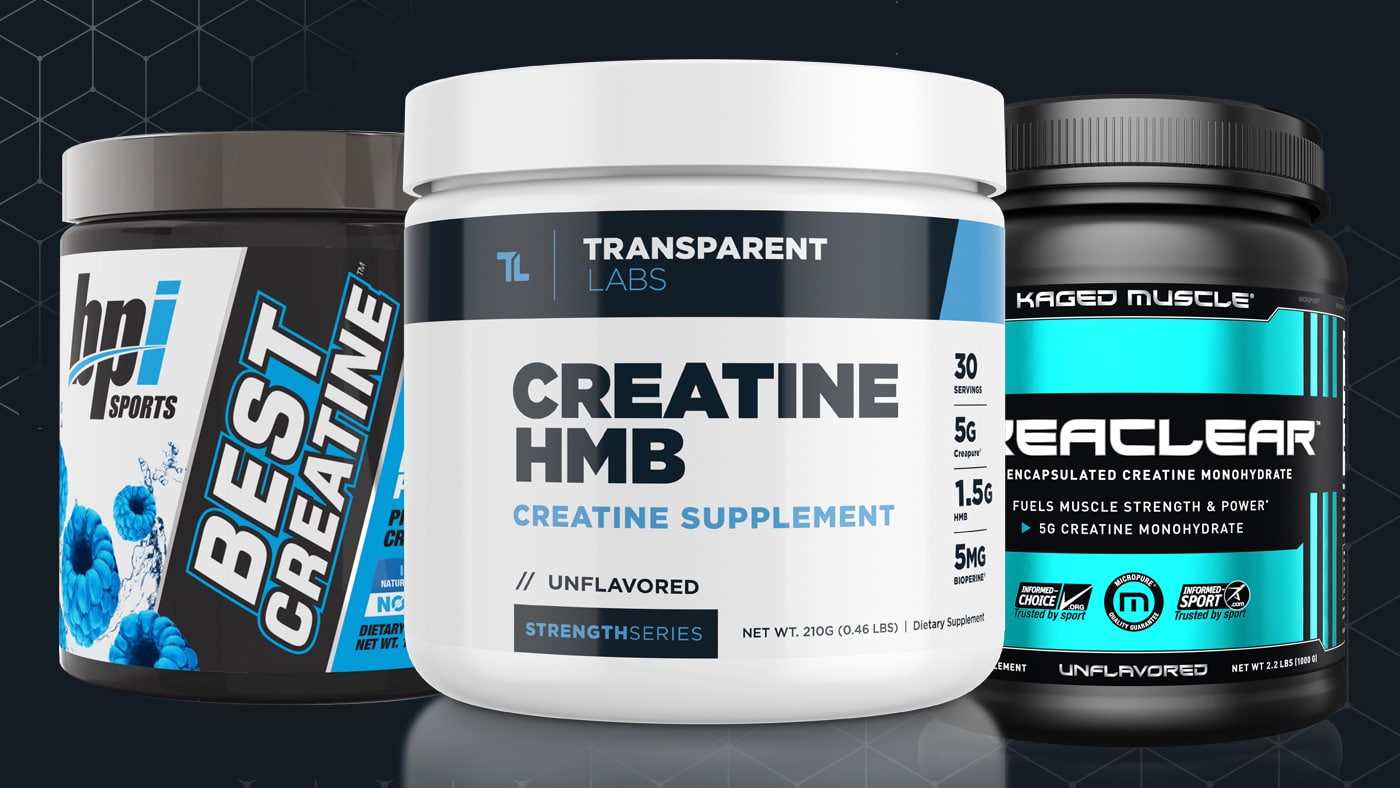





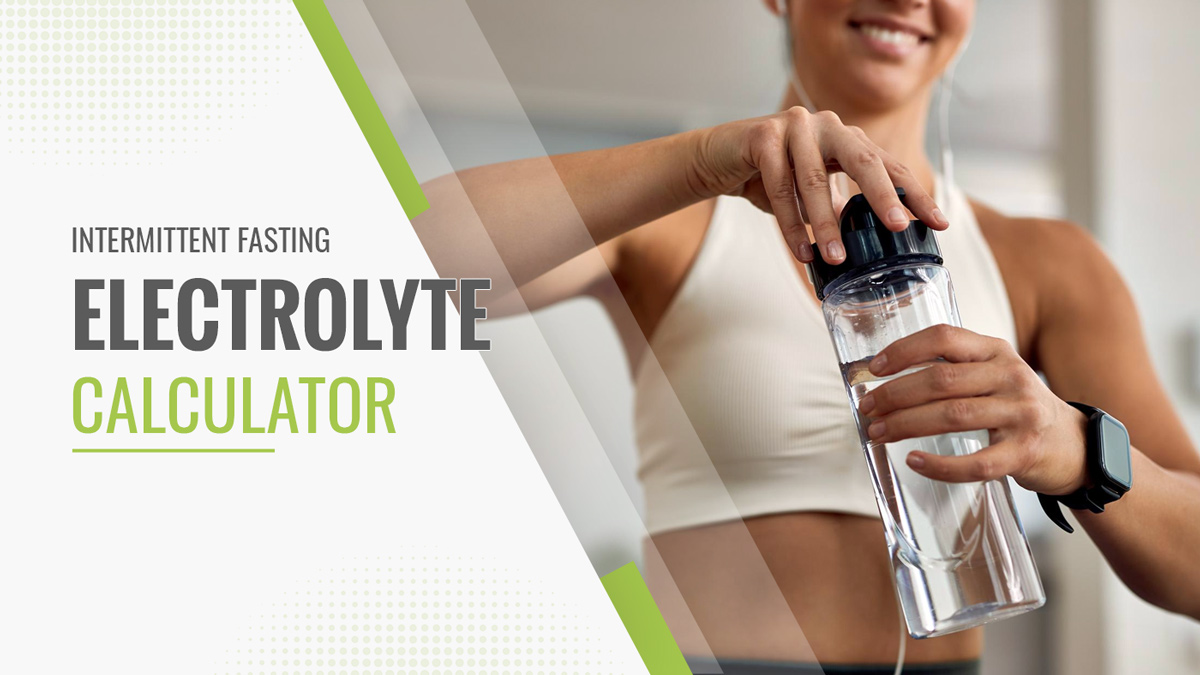

I am a 70 year old male that didn’t Do any sort of physical training I worked hard labor most of my life and I recently had a knee replacement and they nicked a nerve the nerve in my left leg where they put the Q ball for anesthetizing your knee during and three days after surgery it has caused I am I’m losing the use of my left leg and I really don’t know how the hell to cure this . The surgery was two years ago and my left leg has atrophied considerably and it’s now affecting my right leg and my lumbar severely I would love to speak to someone that knows something about it because I get no answers from the medical community thank you much God bless you